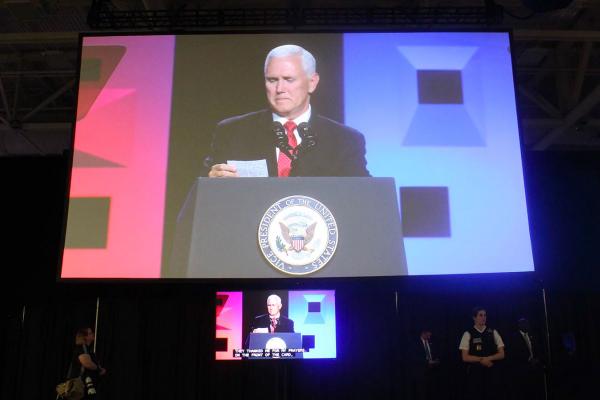Jun 13, 2018
Vice President Mike Pence touted President Trump’s meeting with North Korean President Kim Jong Un in a speech before Southern Baptists and urged their continuing prayers as the administration moves ahead with negotiations to seek peace on the Korean Peninsula.
Read the Full Article

Already a subscriber? Login
